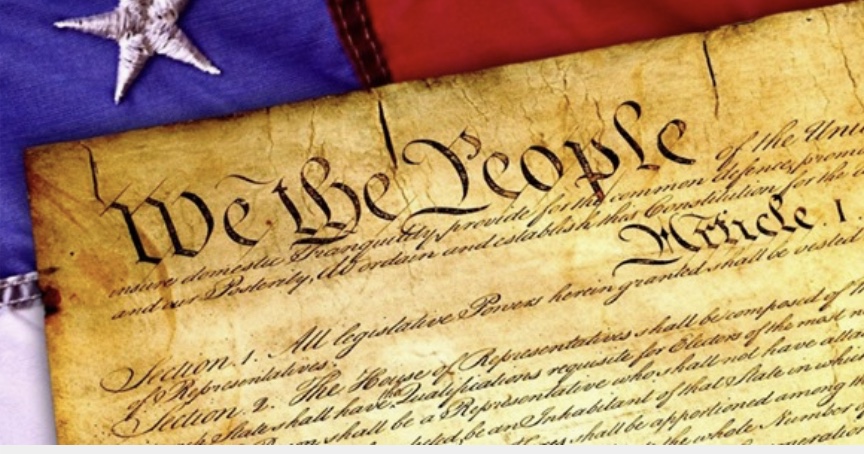
An examination of Biblical teachings on submission to government and what that means for Christians living in a democratic republic like the United States; Was the American Revolution Just?
A recent blog post from The Master’s University proposes that Christians should submit not only to government, but secular forces in the changing United States. First, let’s examine the political claims.
“Recently, there was a bill working its way through the California Assembly that would have declared illegal any Christian counseling that regarded homosexuality as a sin. How do we wage war against an institution that is making such bills?”
Chung’s answer is submission. Based on 1 Peter 2:13-15. He summarizes,
“The battle cry of every believer is, ‘I surrender. I submit to your authority.’ I want you to notice the comprehensive nature of this command. Peter says to every human institution, and then he refers to the king – which speaks of national authority, and then he speaks of the governor – which refers to local authorities.”
There is a time for submission; however, there is also a time for fighting. If the United States remains a democratic republic—and citizens can participate through voting and petition for redress of grievances—then surrender is not an option. Rather fighting for justice is an obligation. We must strive for the good—to establish just laws and oppose evil ones.
We can do this through lawsuits, protests and voting in elections.
The source of sovereignty in the United States derives from the people and is operable through the consent of the governed. As Dr. Tom Ascol said in a recent Founder’s podcast, American citizens behave like citizen-kings. Dr. Ascol provides a handy examination of this in a 2005 blog post. He writes, “But we do not live in a monarchy. We live in a democratic republic. Who is our civil king? We are. The citizens. We are citizen-kings.”
So, as citizen-kings we have important rights and responsibilities. We have a right to participate in the process, and a duty to advance God’s good purpose through that process. C.E.B. Cranfield wrote that the New Testament makes it clear, “that every Christian has an inescapable obligation toward the state.”
Cranfield explains our duty to the state is born out of God’s command and our duty to love. He writes, “Since the state serves both the ordinary temporal good of our fellow human beings and also their eternal salvation, the right service of the state is an integral part of our debt of love to our neighbors.”
Our obligation is to strive for good for as long as we possess the power and the right to do so. There is also some biblical textual issues to consider relative to what submission actually means.
Cranfield goes on to make a strong exegetical case for the meaning of ὑποτάσσεσθαι not being to simply obey. “It is therefore not unreasonable to maintain that in Romans 13: 1; Titus 3: 1; 1 Peter 2: 13f., the word ὑποτάσσεσθαι denotes not an uncritical obedience to the authority’s every command but the recognition that one has been placed below the authority by God and that, as God’s servant and the instrument of Christ’s kingly rule, it has a greater claim on one than one has on oneself, and such responsible conduct in relation to the authority as results from such a recognition.”
One of the problematic parts of Chung’s essay is the conflation of evangelism with political responsibility. This is a common problem in evangelicalism. The personal becomes the political. Often this is used to explain why the state should do some act of charity. Also, public witness is another consequentialist argument made by public theologians.
Chung writes, “Reverential submission is sweet submission because we as believers know and trust that it is our way of evangelizing the surrounding world.”
While our interaction with government and society no doubt has an apologetic-evangelistic element, our actions cannot be predicated on evangelism alone. Rather, since we have political responsibilities delegated to us by God (by virtue of our US citizenship), and a responsibility as Christians to establish the good for all men under that authority, we must apply the appropriate God-ordained rule to each element of our life. As such, one cannot simply obey the state, but must fight for the good.
What about the American Revolution?
This echoes a problematic part of John MacArthur’s interview with Ben Shapiro. In that interview, MacArthur claimed that even the American Revolution was likely unjust for Christians.
However, ethicists, both Christian and non-Christian, have a variety of views on the appropriateness of the American Revolution. One scholar of Augustine’s Just War thinking makes a different case. Eric Patterson explores the themes in his book Just American Wars. He details how Parliament recognized the rights of America’s colonial assemblies, like Virginia’s House of Burgesses, with the sole power to tax their peoples.
The American Revolution grew out of these local powers defending their people’s rights to legal protection from an abusive greater power.
Continue reading here.
[Editor’s Note: This article was written and originally published at the Capstone Report.]










